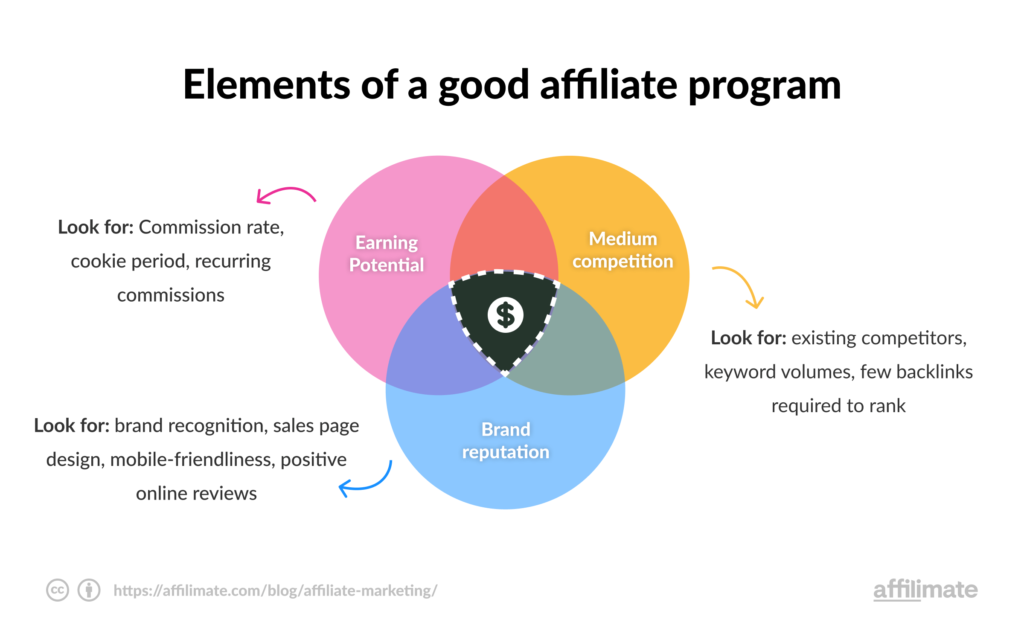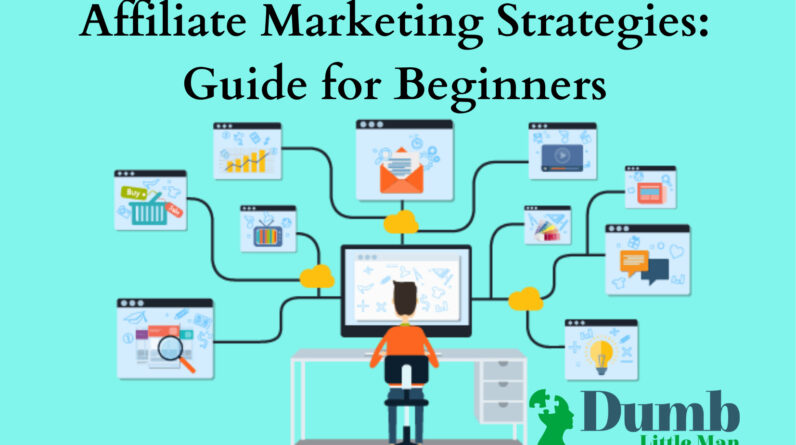
If you’re looking to boost your online earnings through affiliate marketing, then this article is for you. Packed with proven strategies and tactics, we’ll show you how to optimize your affiliate marketing efforts and maximize your profits. From choosing the right affiliate programs to leveraging social media and email marketing, we’ve got you covered. Get ready to take your affiliate marketing game to the next level!
Choosing the Right Affiliate Program
When embarking on your affiliate marketing journey, it is crucial to choose the right affiliate program that aligns with your target audience and objectives. Identifying your target audience is the first step in this process. Understand who they are, their interests, and their needs. By having a clear understanding of your target audience, you can narrow down your options and find affiliate programs that cater specifically to their preferences.
Once you have identified your target audience, it is time to research potential affiliate programs. Look for programs that offer products or services that resonate with your audience. Consider factors such as the program’s reputation, track record, and the types of commissions they offer. Take the time to read reviews and testimonials from other affiliates to get a sense of their experiences.
Evaluating the credibility of an affiliate program is essential to ensure you are partnering with a trustworthy and reliable company. Look for programs that have a solid reputation in the industry and a proven track record of success. Additionally, check if the program has any certifications or affiliations with reputable organizations. This will help ensure that you are promoting products or services that are of high quality and value.
Analyzing the commission structure of an affiliate program is crucial to determine how much you can potentially earn. Some programs offer a percentage-based commission, while others offer a fixed amount per sale. Consider your audience’s purchasing behavior and the average order value to determine which commission structure would be most profitable for you. Additionally, look for programs that offer recurring commissions or lifetime commissions for ongoing sales.
Program support and resources are also important factors to consider when choosing an affiliate program. Look for programs that provide their affiliates with access to helpful resources such as marketing materials, banners, and product information. Additionally, consider whether the program offers support and assistance to its affiliates. Having access to a knowledgeable support team can greatly enhance your chances of success as an affiliate marketer.
Creating High-Quality Content
Creating high-quality content is paramount to attracting and engaging your audience. To understand your audience’s needs, conduct thorough research and gain insights into their pain points and desires. This will enable you to create content that addresses their specific needs and provides value. By delivering content that is relevant and helpful, you can establish yourself as a trusted resource in your niche.
Performing keyword research is another crucial step in content creation. Identifying relevant keywords and incorporating them strategically in your content can improve your search engine rankings and attract targeted traffic. Use keyword research tools to find high-volume, low-competition keywords that are relevant to your content.
When producing content, focus on providing valuable and informative information to your audience. Aim to solve their problems, answer their questions, and offer insights and advice. By delivering content that genuinely helps and adds value, you can build trust and credibility with your audience, increasing the likelihood of conversions.
Utilize different content formats to cater to different learning preferences. Mix up your content with blog posts, videos, podcasts, infographics, and more. This allows you to reach a wider audience and cater to various preferences.
Optimizing your content for search engines is essential to improve its visibility and attract organic traffic. Utilize on-page SEO techniques such as incorporating keywords naturally, optimizing meta tags and headings, and using descriptive filenames for images. Additionally, ensure your content provides a seamless user experience by having fast-loading pages, mobile responsiveness, and easy navigation.
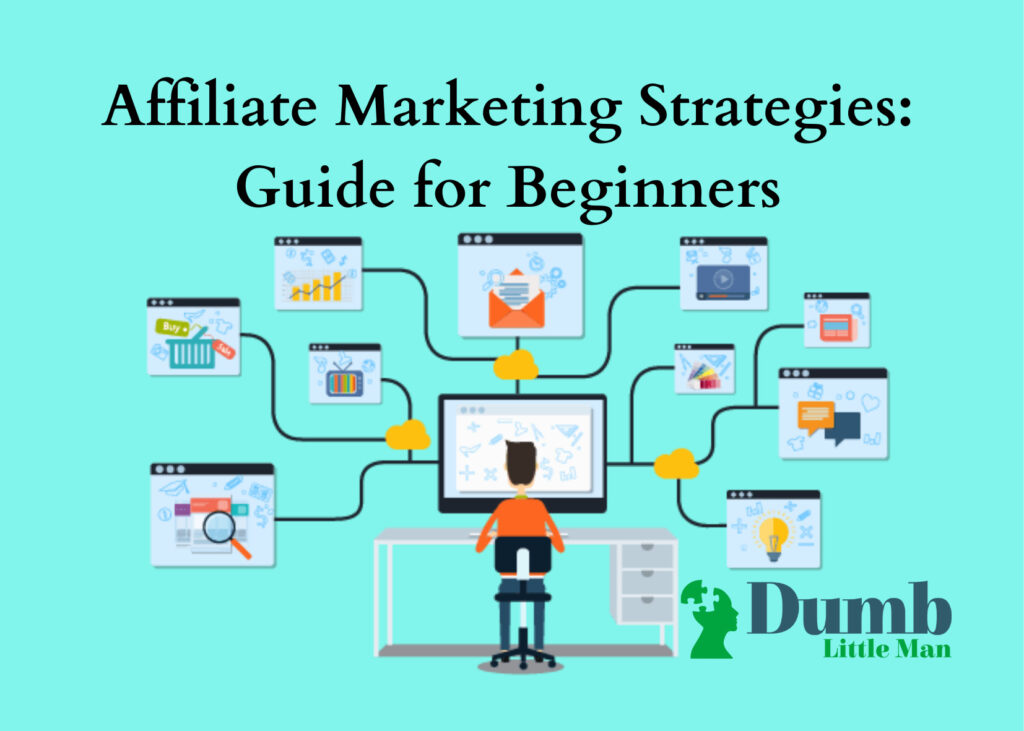
Building a Strong Online Presence
Establishing a professional website or blog is a vital component of building a strong online presence. Your website or blog serves as a central hub for your affiliate marketing efforts, where you can showcase your expertise, share valuable content, and promote affiliate products. Ensure your website has a clean and visually appealing design, optimized for easy navigation and quick access to relevant information.
Creating engaging social media profiles is another crucial aspect of building your online presence. Identify which social media platforms are most popular among your target audience and establish a presence on those platforms. Share relevant content, engage with your audience, and promote your affiliate products in a strategic and non-intrusive manner.
Implementing effective SEO strategies will help drive organic traffic to your website or blog. Conduct keyword research, optimize your content for SEO, and build high-quality backlinks to improve your website’s visibility in search engine results.
Developing an email marketing strategy allows you to engage with your audience on a more personal level. Build an email list by offering valuable incentives such as free e-books, exclusive content, or discounts. Use email marketing software to create compelling email campaigns that provide value and promote your affiliate products.
Utilizing online advertising can also boost your online presence and increase your reach. Consider running pay-per-click (PPC) ad campaigns on platforms such as Google Ads or social media advertising on platforms like Facebook or Instagram. Set clear goals and budget for your advertising campaigns and optimize them based on performance data.
Building an Engaged Audience
To build an engaged audience, it is crucial to actively engage with your audience through social media platforms. Respond to comments, messages, and inquiries promptly and in a friendly manner. Encourage discussions and invite your audience to share their thoughts and opinions. By being responsive and approachable, you can foster a sense of community and encourage audience participation.
Encouraging user-generated content is another effective strategy for building an engaged audience. Ask your audience to share their experiences with the products or services you promote and feature their content on your website or social media platforms. This not only fosters a sense of community but also provides social proof, which can enhance the credibility of the products you promote.
Responding to comments and feedback promptly and sincerely is key to building a strong relationship with your audience. Whether it is positive or negative feedback, acknowledge it, and take the time to address any concerns or questions. By showing that you value your audience’s feedback, you can build trust and loyalty.
Creating a sense of community is crucial to building an engaged audience. Foster interaction among your audience members by hosting virtual events, webinars, or live Q&A sessions. Encourage networking and collaboration among your audience members to create a supportive and interactive community.
Offering incentives for audience engagement can further encourage participation and interaction. Organize contests or giveaways where your audience can win exclusive prizes or discounts. This not only incentivizes engagement but also helps promote your affiliate products.
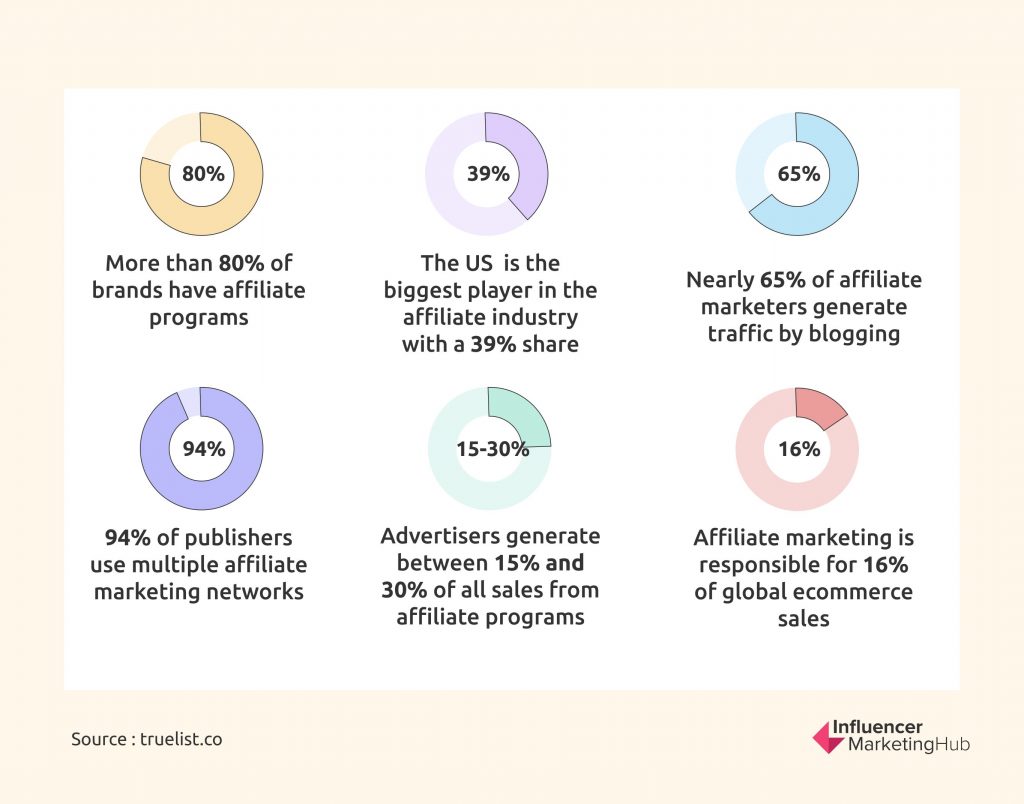
Leveraging the Power of Email Marketing
Building an email list is a valuable asset for any affiliate marketer. It allows you to communicate directly with your audience, nurture relationships, and promote your affiliate products effectively. Offer valuable incentives such as free e-books, exclusive content, or discounts in exchange for your audience’s email addresses. Use email marketing software to manage and automate your email campaigns.
Creating compelling email campaigns is crucial to capture your audience’s attention and drive conversions. Craft engaging subject lines that entice recipients to open your emails. Provide valuable content within your emails and include personalized recommendations based on your audience’s preferences. Use eye-catching visuals and clear call-to-action buttons to guide recipients towards conversions.
Personalizing email content based on your audience’s preferences and behavior can significantly improve your email marketing efforts. Segment your email list based on demographics, purchase history, or engagement levels. Tailor your emails to each segment’s specific interests, needs, and preferences to increase relevancy and engagement.
Testing and optimizing your email campaigns is an ongoing process that allows you to refine and improve your strategies. Experiment with different subject lines, email formats, and calls-to-action to identify what resonates best with your audience. Analyze metrics such as open rates, click-through rates, and conversions to measure the effectiveness of your campaigns and make data-driven decisions.
Utilizing Influencer Marketing
Influencer marketing is a powerful strategy that utilizes the influence of popular individuals to promote products or services. Identify relevant influencers within your niche who have a significant following and align with your audience. Look for influencers who have a genuine connection with their audience and regularly engage with them.
Building relationships with influencers is crucial to successful influencer marketing campaigns. Take the time to research and get to know the influencers you plan to collaborate with. Engage with their content, comment on their posts, and share their content to establish a connection. Personalize your outreach messages and clearly communicate the value and benefits of collaborating with you.
Collaborating on content creation with influencers can greatly enhance your affiliate marketing efforts. Create engaging and valuable content together, whether it’s blog posts, videos, or social media posts. Leverage the influencer’s expertise and audience to enhance the credibility and reach of your affiliate promotions.
Tracking and measuring influencer performance is important to ensure a positive return on investment (ROI). Utilize affiliate tracking software and unique affiliate links to track sales and conversions generated by each influencer. Monitor metrics such as click-through rates, conversion rates, and average order value to evaluate the effectiveness of the influencers you work with.
Leveraging influencer-generated content is another way to maximize the benefits of influencer marketing. Repurpose and share the content created by influencers on your website, blog, or social media platforms. This allows you to leverage their credibility and influence to promote your affiliate products.
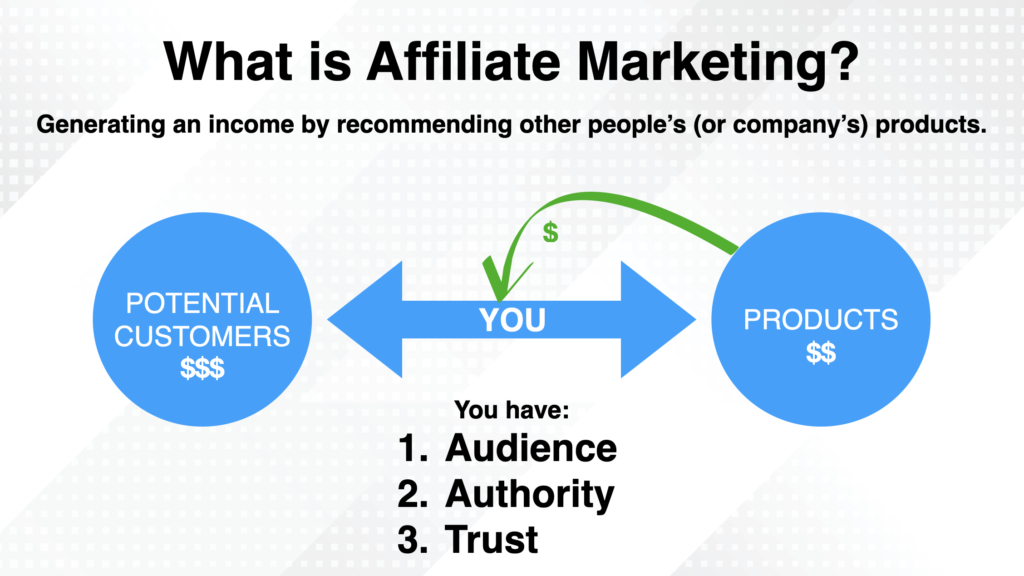
Implementing Effective Tracking and Analytics
Effective tracking and analytics are essential to measure the success of your affiliate marketing strategies and make informed decisions. Use affiliate tracking software to accurately track clicks, conversions, and sales generated through your affiliate links. This will enable you to identify the most profitable affiliates and optimize your efforts accordingly.
Analyze affiliate performance regularly to identify top-performing affiliates and areas for improvement. Monitor metrics such as click-through rates, conversion rates, and average transaction values. Identify affiliates that consistently drive high-quality traffic and conversions, and consider rewarding them with special incentives or higher commissions.
Monitoring conversions and sales is crucial to understanding the effectiveness of your overall affiliate marketing efforts. Track the number of conversions and sales generated through your affiliate links and calculate the revenue generated. This data will help you evaluate the ROI of your affiliate marketing campaigns and optimize your strategies accordingly.
Tracking website traffic and user behavior provides valuable insights into your audience’s preferences and engagement levels. Utilize tools such as Google Analytics to monitor website traffic, page views, bounce rates, and user behavior. Analyze this data to identify popular content, traffic sources, and areas for improvement on your website or blog.
Adjusting your strategies based on data insights is essential to continuously improve your affiliate marketing efforts. Use the data you collect from tracking and analytics to refine your targeting, optimize your content, and improve your conversion rates. Experiment with different approaches and strategies based on the data you collect to find what works best for your audience.
Engaging in Continuous Learning and Adaptation
Engaging in continuous learning is crucial to stay updated with industry trends and best practices. Subscribe to industry newsletters, follow reputable blogs, and attend webinars to stay informed about the latest developments in affiliate marketing. By keeping up-to-date with the industry, you can adapt your strategies to changes and seize new opportunities.
Attending conferences and webinars is an excellent way to gain insights from industry experts and network with other affiliate marketers. Look for events specifically focused on affiliate marketing to gain valuable knowledge and exchange ideas with like-minded professionals. These events can provide opportunities for collaborations and partnerships as well.
Participating in affiliate marketing forums allows you to connect with other affiliates, ask questions, and share experiences. Join online communities where you can learn from others, seek advice, and stay updated on the latest affiliate marketing trends. Engaging in discussions and sharing your expertise can help establish your credibility and expand your network.
Networking with other affiliates is invaluable for gaining insights and support. Participate in networking events, join affiliate marketing groups on social media platforms, and reach out to other affiliates to establish connections. By building relationships with other affiliates, you can share knowledge, collaborate on projects, and find new opportunities for growth.
Experimenting and adapting strategies is key to finding what works best for your audience and optimizing your affiliate marketing efforts. Test different approaches, explore new platforms, and analyze the results to identify successful strategies. Be open to adapting and evolving your strategies based on the data and feedback you receive from your audience.
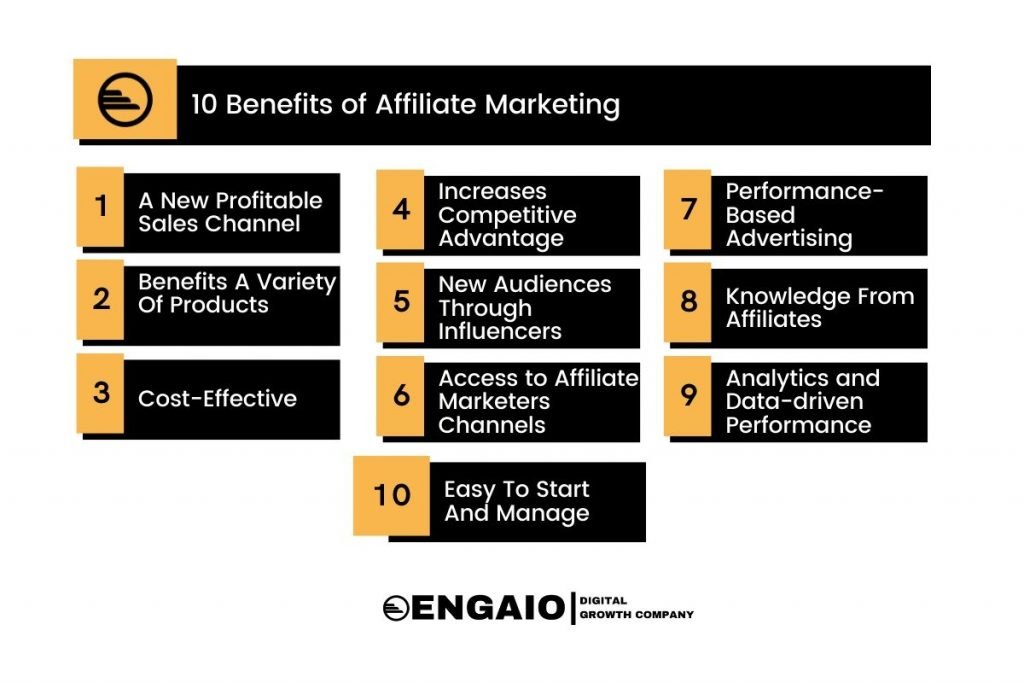
Promoting Affiliate Products Ethically
Promoting affiliate products ethically is crucial to maintaining trust and credibility with your audience. Disclose your affiliate relationships transparently and prominently. Clearly communicate to your audience that you may receive compensation for any purchases made through your affiliate links. This transparency helps build trust and ensures that your audience can make informed decisions.
Being transparent and honest with your audience is essential in building long-term relationships. Disclose any potential biases or conflicts of interest to preserve your audience’s trust. Share your genuine experiences and opinions about the affiliate products you promote, providing balanced and unbiased reviews.
Avoid deceptive or misleading practices when promoting affiliate products. Only make claims that are accurate and supported by evidence. Ensure that your promotions are aligned with the product’s capabilities and limitations. Be responsible in your marketing efforts to protect your reputation and maintain the trust of your audience.
Ensure compliance with legal regulations when promoting affiliate products. Familiarize yourself with the applicable advertising and consumer protection laws in your region. Adhere to guidelines regarding the use of testimonials, endorsements, and disclaimers. Maintaining legal compliance not only protects your audience but also mitigates any potential legal risks.
Maintaining trust and credibility should be at the forefront of your affiliate marketing efforts. Focus on providing value and genuinely helping your audience with their needs. By establishing yourself as a trusted and reliable source of information, you can build a loyal audience and increase your chances of success.
What Are Some Effective Strategies for Beginners in Affiliate Marketing?
Affiliate marketing basics can be overwhelming for beginners, but a few strategies can help. Firstly, research and choose a niche that aligns with your interests and has a potential customer base. Then, focus on quality content creation to engage your audience and build trust. Additionally, utilize social media platforms and email marketing to promote your affiliate products effectively. Lastly, track your conversions and analyze data to optimize your marketing efforts. By implementing these strategies, beginners can thrive in affiliate marketing.
What are Some Affiliate Marketing Strategies to Avoid Common Mistakes?
Common affiliate marketing mistakes can be avoided through effective strategies. One essential step is choosing the right affiliate programs that align with your niche. Other crucial tactics include properly researching products, building trust with your audience, and creating valuable content. Additionally, avoiding spammy promotional techniques and tracking performance regularly can help steer clear of common affiliate marketing mistakes.
Optimizing Conversion Rates
Optimizing conversion rates is crucial to maximizing the effectiveness of your affiliate marketing efforts. Improving website design and user experience can significantly impact your conversion rates. Ensure your website or landing pages have a clean and visually appealing design that is optimized for conversions. Make it easy for visitors to navigate, find information, and complete their desired actions.
Utilizing persuasive copywriting techniques can greatly enhance your conversion rates. Craft compelling headlines and product descriptions that highlight the benefits and solutions offered by the affiliate products. Use persuasive language and a clear call-to-action to prompt visitors to take action.
Implementing effective call-to-action strategies can significantly boost your conversion rates. Use clear and prominent call-to-action buttons or links that stand out. Experiment with different wording, colors, and placements to identify what resonates best with your audience. Keep the call-to-action consistent with the overall messaging and design of your website or landing pages.
Testing and optimizing landing pages is essential to improve your conversion rates. Conduct A/B testing to compare different versions of your landing pages and identify which elements lead to higher conversion rates. Test different headlines, layouts, colors, and calls-to-action to find the optimal combination for your audience.
Utilizing retargeting campaigns can help convert visitors who did not initially take any action. By showing targeted ads to visitors who have already visited your website, you can remind them of the products they were interested in and encourage them to complete their purchase. Create customized retargeting campaigns based on the behavior and actions of your website visitors.
In conclusion, successful affiliate marketing requires a strategic approach encompassing various aspects such as choosing the right affiliate program, creating high-quality content, building a strong online presence, building an engaged audience, utilizing email marketing, leveraging influencer marketing, implementing effective tracking and analytics, engaging in continuous learning and adaptation, promoting affiliate products ethically, and optimizing conversion rates. By carefully considering each of these elements and continuously refining your strategies, you can increase your chances of success in the affiliate marketing landscape.
